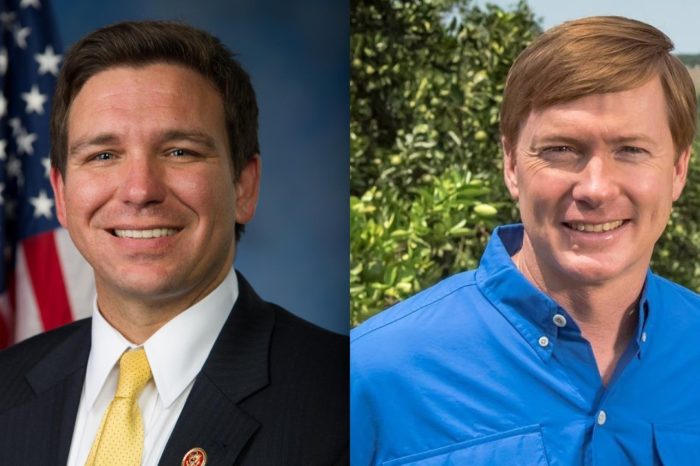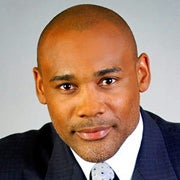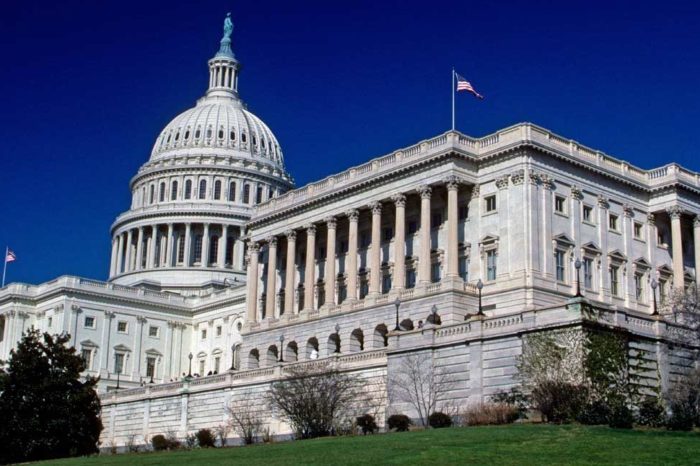 How is it possible to insist that the next socialist regime will be different?
How is it possible to insist that the next socialist regime will be different?
Some claim capitalism dehumanizes individuals. Others claim Horatio Alger stories are a myth, believing individuals have little social or economic mobility under capitalism and cannot rise above the circumstances into which they are born.
If you believe capitalism does a worse job than socialism on social and economic mobility and that socialism treats people more humanely, please spend time in a collectivist country such as North Korea and report back.
In my essay, “People Are Less Selfish Under Capitalism,” I explore why individualism and free exchange make people more altruistic and trustworthy. The flip side of this issue reveals how and why collectivism dehumanizes individuals.
Collectivist Societies Are Held Together by Hate
In The True Believer, a seminal book on mass movements by social philosopher Eric Hoffer, Hoffer writes: “Mass movements can rise and spread without belief in a God, but never without belief in a devil. Usually, the strength of a mass movement is proportionate to the vividness and tangibility of its devil.”
Hoffer recounts the story “of a Japanese mission that arrived in Berlin in 1932 to study the National Socialist movement.” British journalist Frederick Voigt “asked a member of the mission what he thought of the movement.”
Demonstrating the need for a tangible “devil,” the member replied, “It is magnificent. I wish we could have something like it in Japan, only we can’t, because we haven’t got any Jews.”
Without stirring primitive hatred pitting “us” against “them,” there can be no unwavering allegiance of the population when a mass movement fails to deliver on its promises.
When socialism’s inevitability fails, the ruling elites have to shift the attention of the population to a scapegoat. Someone or some group other than the political leadership needs to be blamed.
When human beings are not consumed by thoughts of differences and hate, they naturally connect with the humanity in others. As psychology professor Nour Kteily observes, “We have this incredible capacity for cooperation; it’s what makes us human in many ways. And yet we have this capacity for othering.”
Hatred begins when we dehumanize others. We lump individuals into a single homogeneous group. This other group becomes the target of hate when we believe ‘I am suffering because of them.’
Philosophy professor Michelle Maiese provides insight into how othering leads to deindividuation, which leads to dehumanization and opens a moral loophole to justify harming others:
Deindividuation facilitates dehumanization as well. This is the psychological process whereby a person is seen as a member of a category or group rather than as an individual. Because people who are deindividuated seem less than fully human, they are viewed as less protected by social norms against aggression than those who are individuated. It then becomes easier to rationalize contentious moves or severe actions taken against one’s opponents.
Once certain groups are stigmatized as evil, morally inferior, and not fully human, the persecution of those groups becomes more psychologically acceptable. Restraints against aggression and violence begin to disappear. Not surprisingly, dehumanization increases the likelihood of violence and may cause a conflict to escalate out of control. Once a violence break over has occurred, it may seem even more acceptable for people to do things that they would have regarded as morally unthinkable before.
The Nazis depicted Jews as rats. Hutu officials in Rwanda called Tutsis cockroaches. Stripped of their humanity, Jews and Tutsis became victims of genocide.
Like the Japanese, North Koreans have no Jews, but the North Koreans have made a “devil” out Americans—and much of their own population.
North Korean defector Hyeonseo Lee grew up thinking her country “was the greatest nation on earth.” In her book, The Girl With Seven Names, Lee explains how she was taught that “South Korean children were dressed in rags” and “scavenged for food on garbage heaps and suffered the sadistic cruelty of American soldiers, who used them for target practice, ran them over in jeeps, or made them polish boots.” Lee’s teacher showed “cartoon drawings of children begging barefoot in winter.”
Those in North Korea suffer unimaginable deprivations and do not understand how much better off the rest of the world is. The North Korean house of horrors is held together by brute force, unrelenting propaganda, and indoctrinated hate.
Like Hyeonseo Lee, Yeonmi Park is a North Korean defector. In her book, In Order to Live, Park tells of North Korean school children learning arithmetic by counting the number of dead “American bastards.”
Stirring up hatred against Americans, however, is not enough to keep the Kims in power in North Korea. Few North Koreans will ever encounter an American.
Sadly, the greatest hatred of the ruling elites in North Korea is reserved for their own people when their allegiance to the state is judged as less than absolute. According to the NK Hidden Gulag blog, a project supported by the Committee for Human Rights in North Korea, this class of citizens allegedly harbors “counter-revolutionary attitudes or associations, including being guilty of what North Korean gulag expert David Hawk describes as ‘wrong-doing, wrong-thinking, wrong-knowledge, wrong-association, or the wrong-class background.’”
A Feudal System
North Korean people live under seongbun, a rigid system of social classification from which there is no hope of escape. Once classified, the only possible social movement is down.
All 23 million North Koreans are classified into one of three categories: “loyal, wavering, or hostile.” Hyeonseo Lee describes the seongbun system:
Within the three broad categories there are fifty-one gradations of status, ranging from the ruling Kim family at the top, to political prisoners with no hope of release at the bottom.
The irony was that the new communist state had created a social hierarchy more elaborate and stratified than anything seen in the time of the feudal emperors. People in the hostile class, which made up about 40 per cent of the population, learned not to dream. They got assigned to farms and mines and manual labour.
An essential feature of seongbun is the doctrine of yeon-jwa-je for the collective punishment of political crimes. As the yeon-jwa-je edict, issued by Kim Il-sung in 1970, states, “The seed of factionalists or enemies of class, whoever they are, must be eliminated through three generations.”
Lee describes how the Bowibu, the secret police of North Korea, rely on neighbors “to inform on neighbours; children to spy on children; workers to watch co-workers; and the head of the neighbourhood people’s unit, the banjang, [to maintain] an organized system of surveillance on every family in her unit.”
Collective guilt, yeon-jwa-je, creates a population that lives in a state of fear and paranoia.
Lee adds that the “Bowibu weren’t interested in the real crimes that affected people, such as theft, which was rife, or corruption, but only in political disloyalty, the faintest hint of which, real or imagined, was enough to make an entire family–grandparents, parents and children–disappear. Their house would be roped off; they’d be taken away in a truck at night, and not seen again.”
“Sitting on a newspaper with a Kim’s face” is a “crime” that can send three generations to North Korean concentration camps.
Worship of the Kim dynasty is demanded of the population. Lee describes one manifestation of this worship:
Our entire family life, eating, socializing and sleeping, took place beneath the portraits. I was growing up under their gaze. Looking after them was the first rule of every family. In fact they represented a second family, wiser and more benign even than our own parents. They depicted our Great Leader Kim Il-sung, who founded our country, and his beloved son Kim Jong-il, the Dear Leader, who would one day succeed him. Their distant, airbrushed faces took pride of place in our home, and in all homes. They hung like icons in every building I ever entered. From an early age I helped my mother clean them. We used a special cloth provided by the government, which could not be used for cleaning anything else.
Relentless North Korean propaganda has claimed that some gave their lives to save the “sacred” portraits:
Each year, stories of portrait-saving heroics would be featured in the media. My parents would hear a radio report commending a grandfather who’d waded through treacherous flood water holding the portraits above his head (he’d saved them, but sacrificed his own life in the attempt), or see a photograph in the Rodong Sinmun, the national daily, of a couple sitting precariously on the tiled roof of their hut after a catastrophic mudslide, clutching the sacred portraits. The newspaper exhorted all citizens to emulate the example of these real-life heroes.
Here is the ultimate dehumanization: all that truly matters in North Korea are the lives of the Kims. “Even those dying from starvation…they said ‘I’m worried about Kim Jong Il, the leader. His health. His safety.’”
There Is Nothing Unique about North Korea
In the vast system of North Korean concentration camps, North Korean guards treat their fellow North Koreans brutally. Indoctrinated in seongbun and yeon-jwa-je, guards see prisoners as less-than-human, counter-revolutionary “others.”
In his book Long Road Home: Testimony of a North Korean Camp Survivor, Yong Kim offers a searing testimony of the brutality in North Korean concentration camps. Yong Kim is one of the only known survivors of camp No. 14. Yong Kim details the plight of inmates forced to work over 12 hours a day doing dangerous and hard work on “three handfuls of corn kernels accompanied by a little rough salt and a bowl of watery soup—a portion deliberately designed to starve inmates to slow and excruciating death.”
As Yong Kim writes, “Prisoners were beyond the point of feeling hungry, so they felt constantly delirious. But what was really killing us was psychological and emotional torture. No family members were allowed to stay together.” (Recall that three generations of North Koreans are imprisoned for political crimes.)
If you believe the horrors of North Korea are an aberration, you are wrong. History shows socialist states dehumanize others, grouping them into hostile classes, as UCLA professor Kim Suk-Young explains in her introduction to Long Road Home:
We find practices similar to the North Korean seongbun, which marked undesired social groups and stigmatized them permanently in the aftermath of the socialist revolution. Richard K. Carton notes that “every Communist assumption of power—in Poland, Czechoslovakia, Hungary, Romania, Bulgaria, Yugoslavia, and Albania—was accompanied by mass arrests aimed primarily at the elimination of the opposition. Some prisoners were interned and others were assigned to forced labor.” Likewise, in the People’s Republic of China, as Philip F. Williams and Yenna Wu’s study shows, a similar process of grouping undesirable people took place on a massive scale: “Justification of large-scale political arrests … would recur in the legal policies of and criminal law instituted by successive Chinese Communist regimes throughout the twentieth century. This general pattern was much the same for Leninist regimes throughout Eurasia, especially during the phase of consolidation.”
The ruling class needs the hostile class to be a scapegoat and also a source of labor, as Suk-Young points out:
What is intriguing about this effort at massive elimination of certain social classes, however, is not only the creation of the so-called antirevolutionary class but also the fact that most of the antirevolutionaries ended up being absorbed by the state as a source of free labor. As Williams and Yu argue, “Because of their bad class background and the government’s need for cheap labor, able-bodied rich farmers and landlords who were charged with no crime at all were also often conscripted for coercive service in the hard labor brigades.”
An essential feature of socialism is to dehumanize others. Like millions in Pol Pot’s Cambodia or Mao’s China, millions of North Koreans have been taught to hate others. Millions in the “hostile class” have been starved, brutalized, and murdered. Socialism will never produce a different outcome. How is it possible to insist that the next socialist regime will be different?
ABOUT BARRY BROWSTEIN

Barry Brownstein is professor emeritus of economics and leadership at the University of Baltimore. He is the author of The Inner-Work of Leadership. To receive Barry’s essays subscribe at Mindset Shifts.
RELATED ARTICLES:
How Politics Distorts Our Perceptions
What’s Really Wrong With Inequality?















 Western nations are abandoning the policies that made them prosperous.
Western nations are abandoning the policies that made them prosperous.
 Even as recently as 1960, welfare states were very small compared to their current size. Indeed, redistribution spending in Western nations averaged only about 10 percent of economic output, about half the size of today’s supposedly miserly American welfare state.
Even as recently as 1960, welfare states were very small compared to their current size. Indeed, redistribution spending in Western nations averaged only about 10 percent of economic output, about half the size of today’s supposedly miserly American welfare state.













 Hub Sarasota
Hub Sarasota
